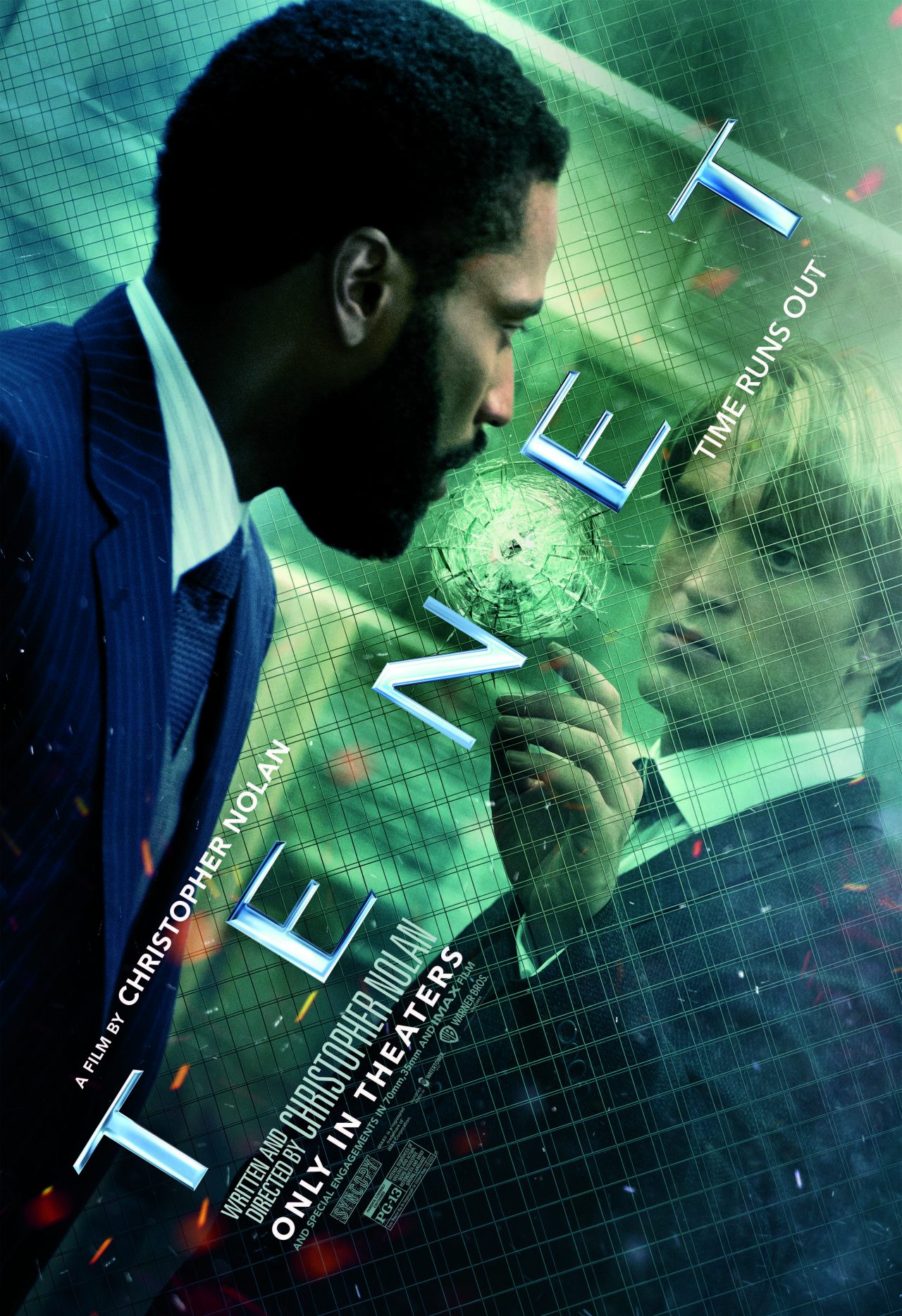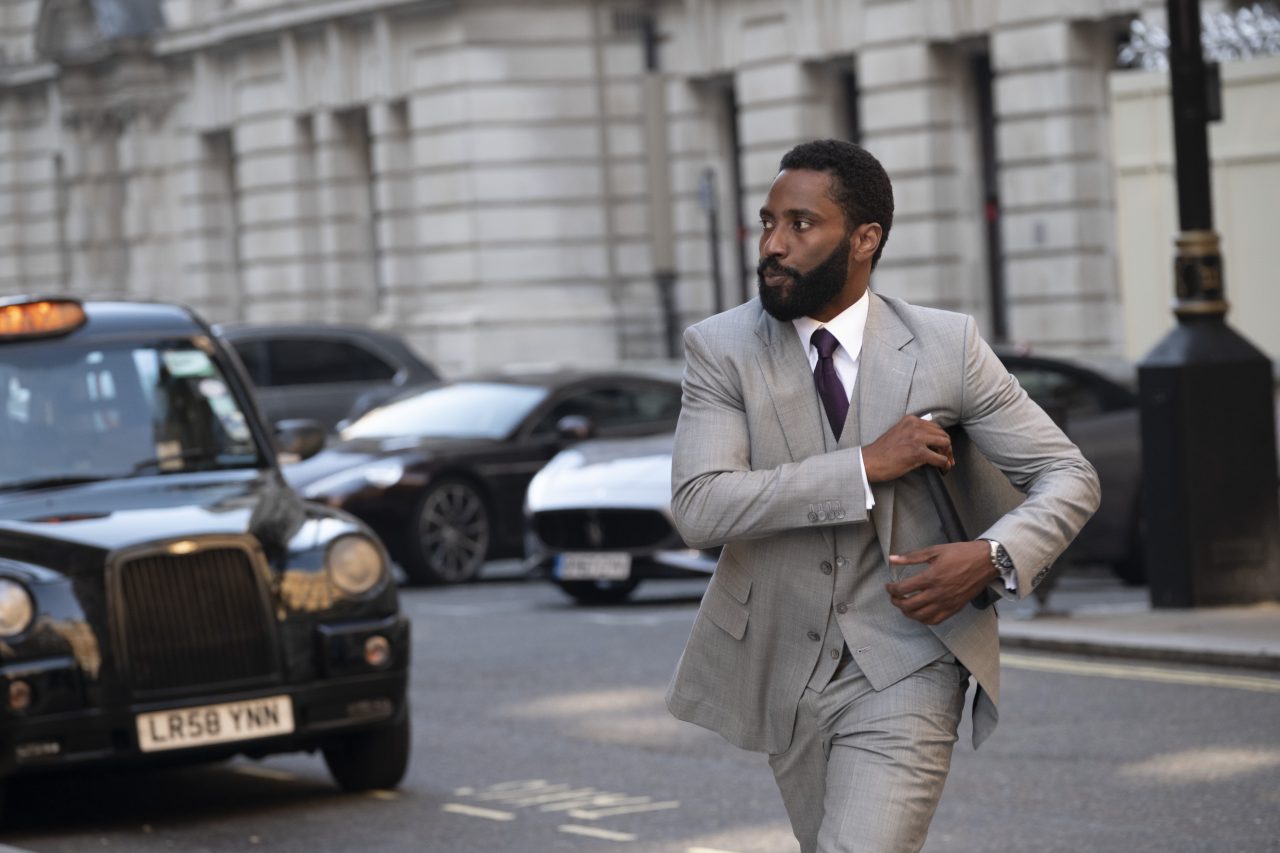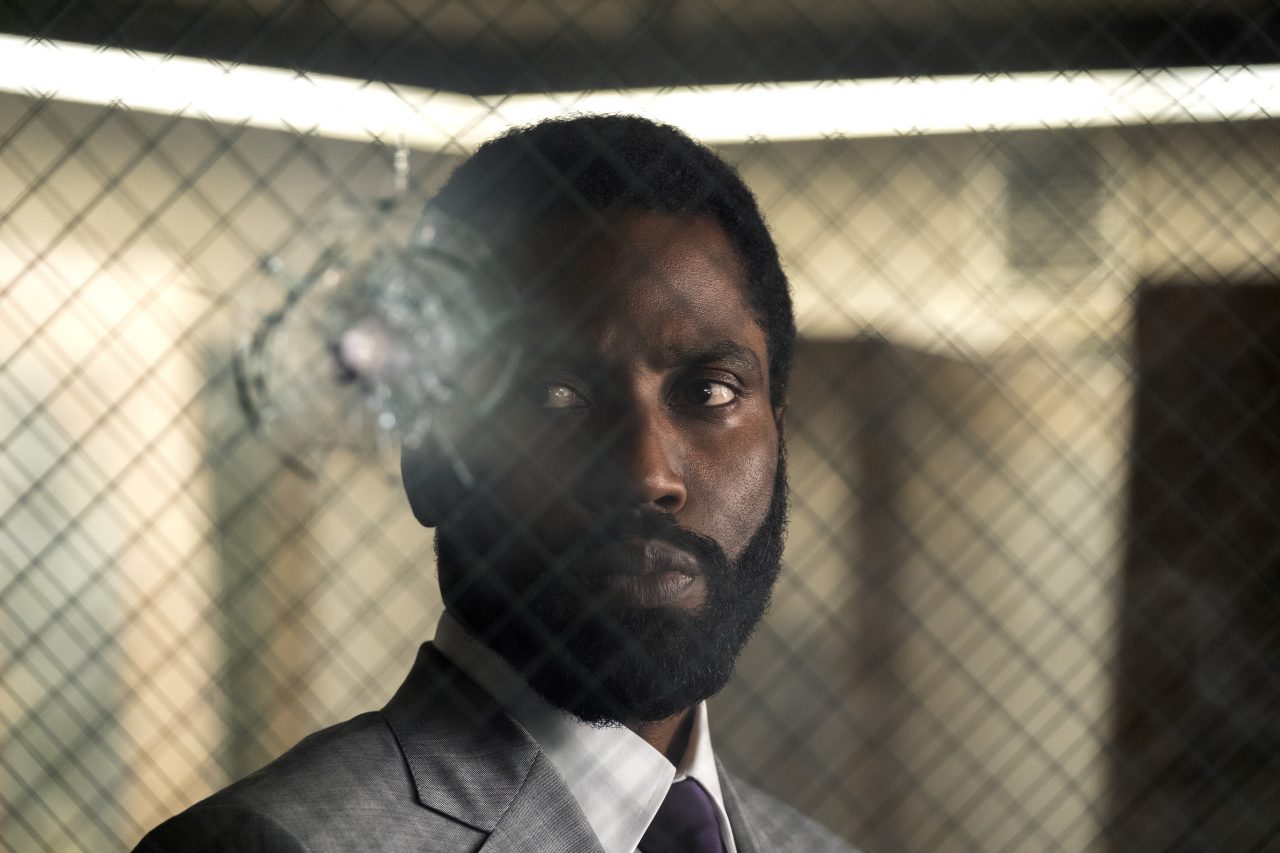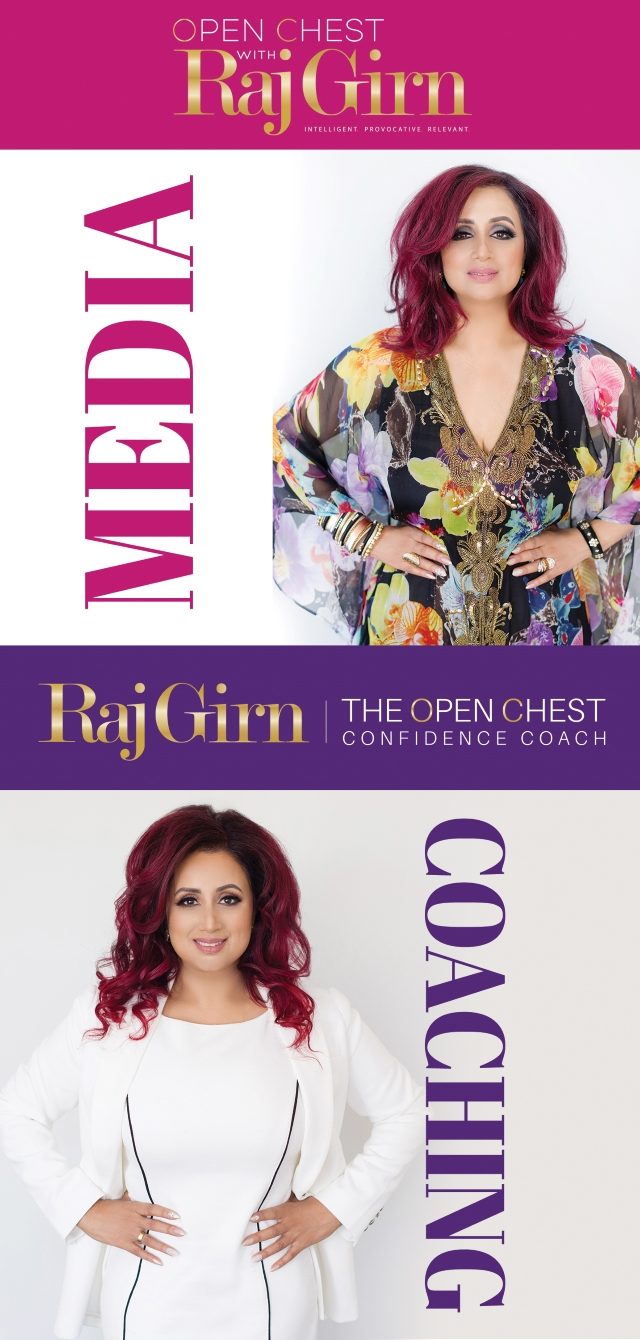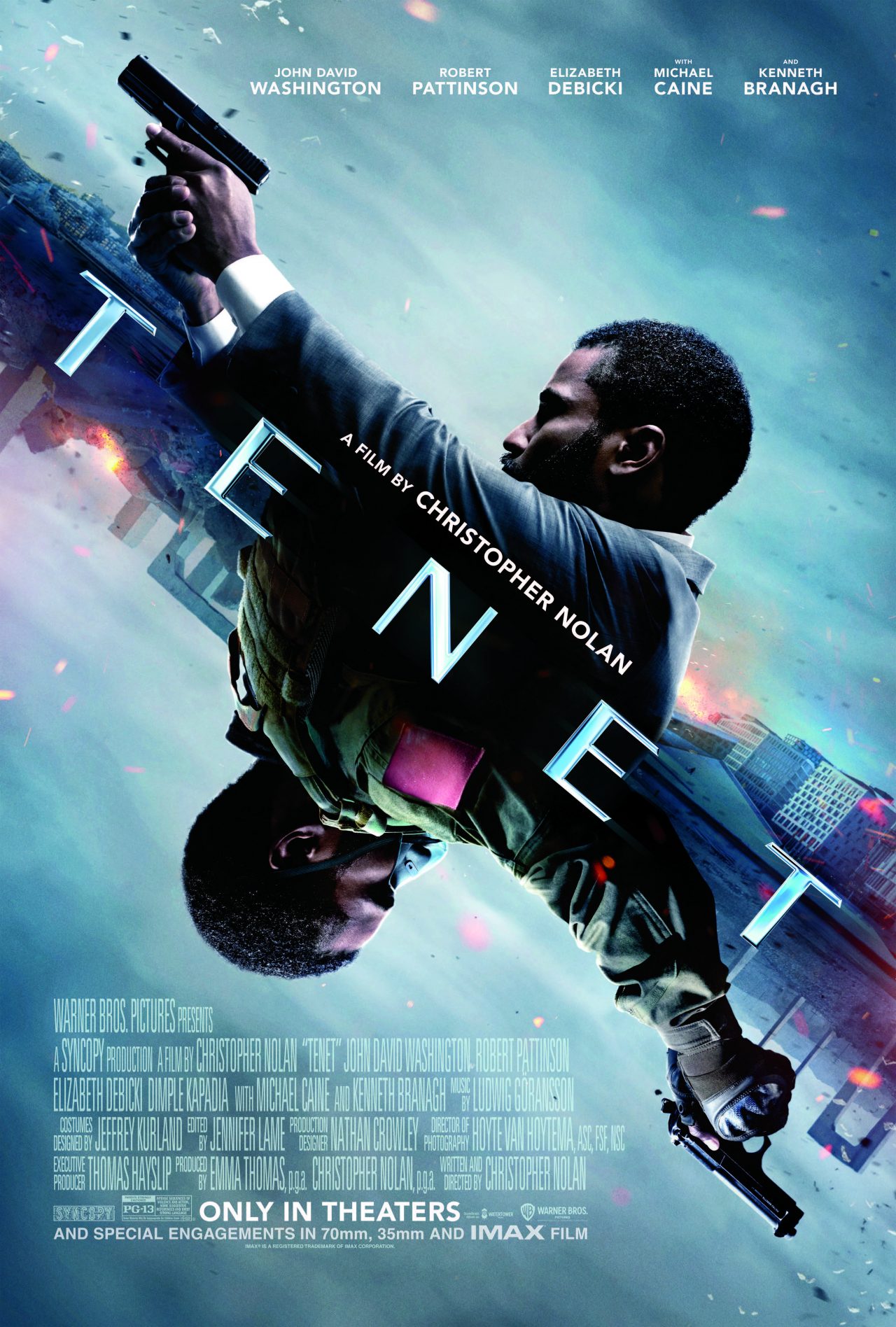
‘Tenet’ is a Warner Brothers film by Christopher Nolan. An action-packed, sci-fi adventure, with a multi-star cast from around the world, with a superhero who is larger than life, because he is a human juggernaut who keeps the story together.
Tenet surpassed its expected 30 million dollar opening weekend by grossing an unexpected 53 million at the box-office, which is clearly a testament to the unique experience of watching films like this on the big screen, and our need as a society to return to the theatre experience.
I had the pleasure of chatting with 2 of its stars, American actor John David Washington and British Asian actor Himesh Patel.
JOHN DAVID WASHINGTON
The main lead of the film is John David Washington, best known for his critically acclaimed performance in the 2018 film, BlackKklansman. We speak about why his character is nameless throughout the film, the significance of him as the central character, and his take on colour-blind casting. Here is our conversation . . .
Hey, John David, how are you?
I’m good, how are you?
I am wonderful. Thank you. And you know, I have a ton of questions for you. I’m super excited to be having the opportunity to chat with you. My first question is one of the key themes of Tenet is the concept of inversion. Can you explain what this means in the context of the film? I mean, I’ve seen the film, but I really would love to get your take on that.
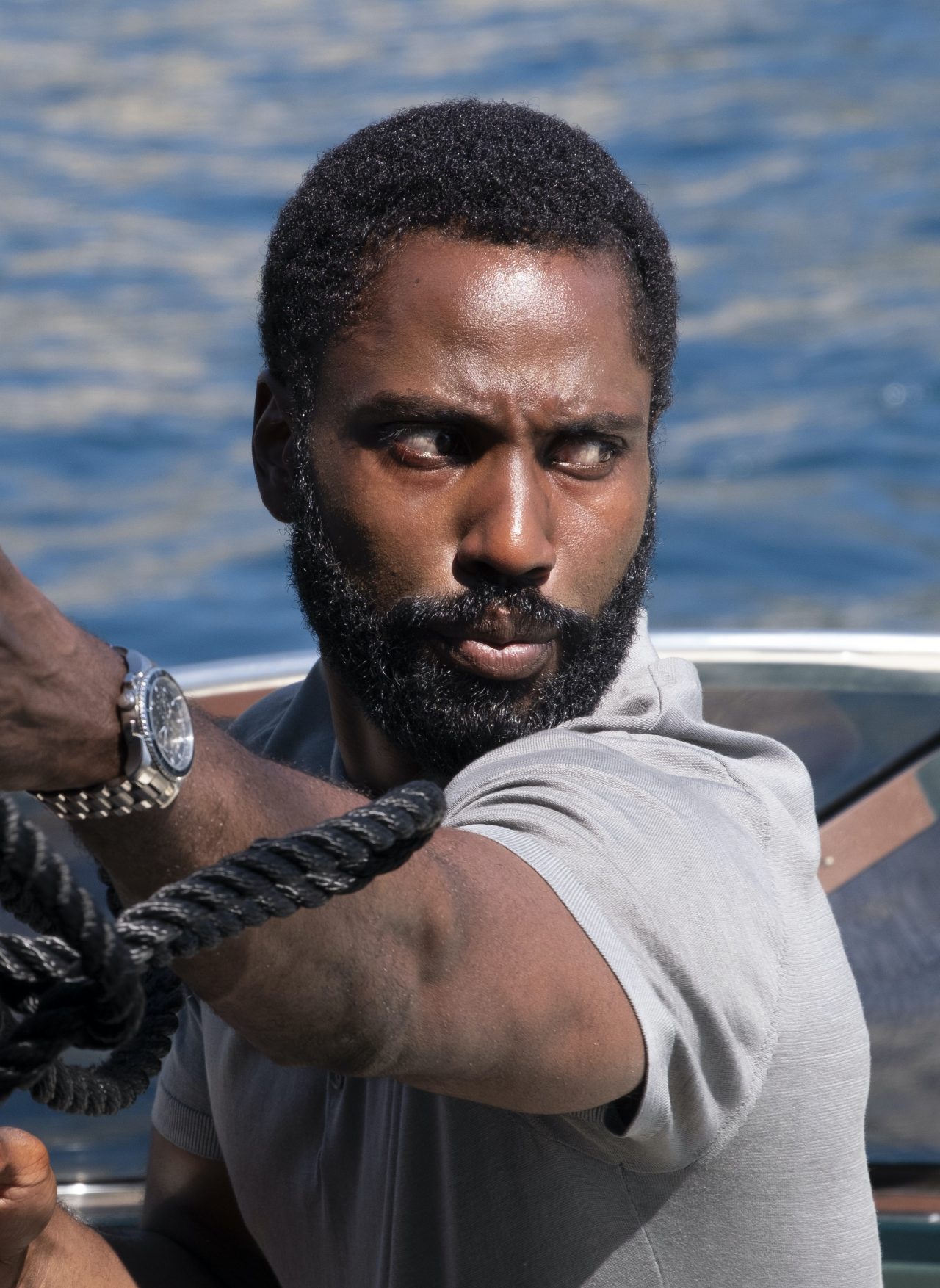
I believe it’s the concept of time being non-linear like what’s forwards is backwards, what’s backwards is forward. It’s all interchangeable except the point of entry. That being said, developing technology and then expanding that idea into a somewhat time machine or whatever you want to call it, a device that allows you to actually drop yourself in time is extraordinary. It’s something new. It’s usually one concept, one at a time machine. But in this case, it’s developing technology that can invert anything which I think is high concept.
People really get a ride with this film. It’s so action packed. The interesting part for me was your character. I have to be very honest; your character is known as the protagonist. I’ve got to ask you this, and it’s probably such a cliche by now with all the interviews that you’ve had, but he is the main lead and also the only character without a name. What’s the significance of him having no name?
I think the significance is well, for me personally, just as the actor playing the protagonist, it was exciting. It was so significant because it meant that anything goes, that we can build him from the ground up. We’re not limiting him. We’re not labeling him. It’s not like, ‘oh, that’s a cool name, he looks like he would be Jason Bourne’, you know. There are just more possibilities for him. He could be anything. We can create something new in a genre like this that’s also new. So, the protagonist relationship to the movie, I believe it directly has to do with the audience. I think the protagonist is one to one with the audience.
So, the audience members now can be the protagonist because there’s not a lot of information about his background. He doesn’t even have a name. So, you can see yourself as a protagonist because everything he’s experiencing in this movie as we are experiencing it, we’re doing it at the same time simultaneously. So, I think maybe on a subconscious level, on a smaller scale. As we watch it, it’s easier to feel that immersive experience, that one to one with the character because we don’t have a name for him, we just see this man put in this situation and seeing what he’s going through and what he’s discovering, what he’s learning about himself. We are learning about him and we are learning about the world.
Absolutely, and I think that kind of lines up nicely with a quote that I read that you wrote and quoting it, you said, “it’s always the characters I most invest in.” What was it about the protagonist’s character and the role of him in this film that attracted you to want to bring him to life? Like, why was this character important for you to want to do?
Because Christopher Nolan wrote it. [laughs] But other than that, as I alluded to before, as the name entails, it’s just a wide range, just a huge net of creativity, of building a character from the ground up, you know, calling in my resources and doing the proper research on operatives and what a spy really is in real life, what a Navy SEAL does in real life, combining that with what’s on the page. I saw a great deal of vulnerability from this man, which we’re not usually seeing. It can almost come as a contradiction, a man that knows how to professionally kill and kills for a living like it’s nothing. Well, what he doesn’t laugh at all? Or if he does, he’s a ‘bad guy’. You know, he’s a ‘sociopath’ because he enjoys what he does.
So, all the rules are broken in this sense and I wanted to bring the human element to it, the human aspect of him. I wanted to humanize him. Because this story is dealing with the rules and the technology of inversion, Chris has set an environment in which we’re dealing in real time, that he’s making this concept of his play in the real physicality and how the characters have to deal with seeing this alien like person or these alien like moves, this foreign movement is what defies the laws of gravity and physics like happen in front of the protagonist. So how does he react to it? How would you react to somebody walking and talking to you backwards? So, if that’s the case, if those are the rules, then I got to play it as a human being would, you know? It was a lot of fun and encouraging that Chris allowed and really pushed for that human element.
And he is the driver of the film because he’s the force of, quote unquote, doing the right thing throughout the film. No matter what’s at stake, he’s like the true north star in a sky of uncertainty that pulls us back through to ground zero throughout the film. And with all that kind of action packed twists and turns and plot movements and all these very layered characters that kind of cross pollinate with each other, it’s almost like you go back to the protagonist any time that you kind of want to see what you would want to see happen in a world that is right in all of what seems confusing, like that’s kind of the feeling that I got with this particular character. What are your thoughts on that?
I mean, I can’t say it better than that. Wow. Oh, my God. I mean, there you go. The north star in the sky of uncertainty. Is that what you said? Well played. I mean, to try to piggyback on that, like I was saying earlier as well, I think as the protagonist goes, we the audience members go. So, if we get lost in some of the technology and what’s being explained, you know, maybe the protagonist might be looking lost as well. So, it’s almost like, ‘oh, it’s okay to be lost.’ We’re still with him. When something emotional happens, we do feel it because we believe him. We’ve been with him the entire ride and the chemistry that he has with his teammates, with the people he’s working with, we feel that same thing as the audience member. So, it’s important and a unique experience for me to play it that way. What you just said. I mean, that’s what I was hoping to hear. You put it so beautifully. But that is the hope.
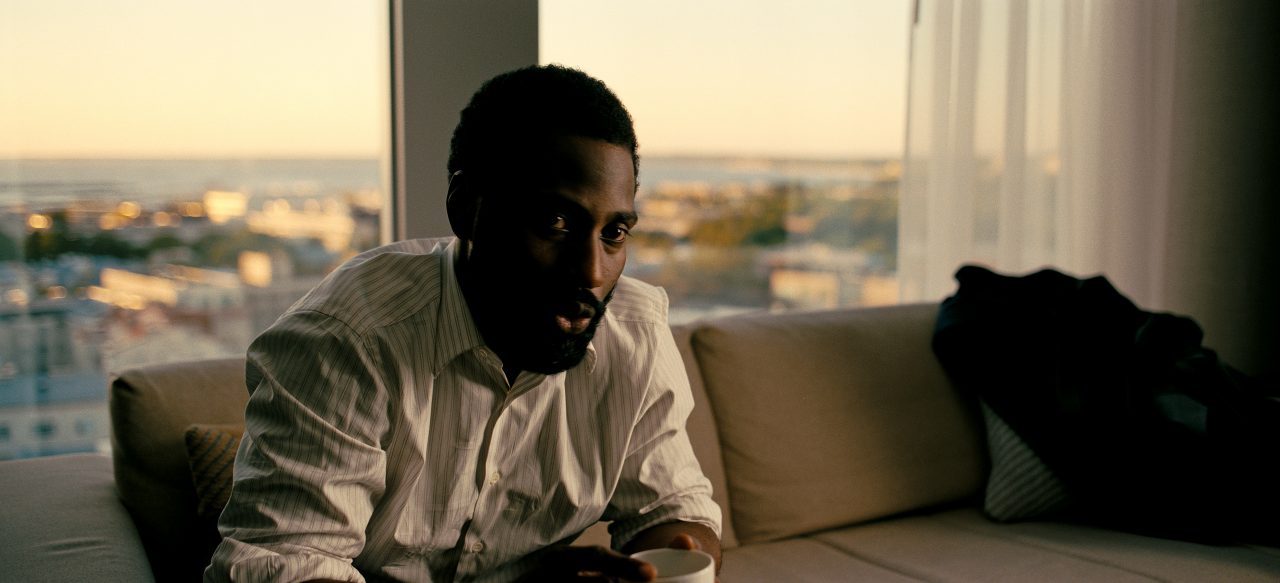
And that is the hope that we get as someone that’s watching it, because you feel like you could be that character. And I think that’s the difference between this superhero, because I feel like he’s a superhero. Then over and above, you know, a lot of the traditional superheroes that we know about. Christopher Nolan is a very purposeful filmmaker, as we all know, everything he does or doesn’t do is a testament to a meticulous, multilayered storytelling mind.
And to this point, he names his film Tenet and his antagonist, Sator. I mean, I look that up and the Sator Square is made up of a sequence of five words, all of which form a palindrome. Sator is the first word of the square and Tenet is the third and middle word. Clearly there’s a theme here. In your understanding, what is the significance of these two words being used for this particular film? I mean, what’s the message here?
I think Tenet is thematic of the film. I mean, I think Tenet is exactly how the story is displayed. The film is a palindrome. And the concept of inversion is the point of entropy. That’s the only thing that is consistent. Otherwise, everything is where the story can be told forwards and backwards. So, this concept of time, it can be an ally or can be your worst enemy, you know, and it depends on your perspective. In this story, it’s the perspective of the protagonist, you know. So even when we start the film, we’re not exactly sure where he is in his life. We’re not exactly sure, you know, where the temporal pincer movement starts. I think that’s emblematic of the title.
It’s almost like you have to watch this film a few dozen times to kind of really understand what’s going on and truly why the characters are introduced when they are and why it’s just such a fascinating film. Another fascinating thing about the film that I found, John David, is that the film is very diverse in its choice of characters and the talent chosen to play each of them. It positions the film really well to woo a global audience.
What I wanted to ask you there was in today’s time that we live in, do you think that colour-blind casting is the future of filmmaking or should it be considering that we live in a far more global community today than we ever have before? So, in other words, what I’m asking you is, in short, choosing actors for their talent versus their ethnic background or the perceived idea of what the person should be rather than the diverse ability to be able to bring the character to life. So, what are your thoughts on that?
Speak on it! Speak to the people, power to the people! I mean, Christopher Nolan is always ahead of the game. I think, as you say, the way he casts I mean I think speaks to why we love this film so much. It’s almost like a secret ingredient in how he puts people together because he leans on performances more than I realized until actually being behind the curtain and working with him. I always loved the performances that he gets but I really understand how significant, much, much more significant, how much more they are as important to understanding the story, even if we don’t all the way understand the concept of things. I think going forward, hopefully what can encourage in this industry is not just the way I guess you said colourless casting, but who’s doing the picking, who’s doing the green lighting of these films. Who are behind the cameras? I think that’s when we see the true significance of what Chris has done already with this cast.
You know, in choosing the characters the way he did. What I found so fascinating, John David, was the fact that he chose actors that are from specific parts of the world, but he put them in characters that were from different parts of the world other than Dimple Kapadia..
She is a rock star, by the way really quick, she is a wonderful human being, a tremendous, an outstanding artist. I loved it. Working with her, it was such an incredible experience. She cooked me food, family recipe, like she just spoiled me with embellishment of riches. It was crazy. She gave me two paintings. I love that woman. She was incredible. And it’s funny because she’s so sweet but when we are in action, she is tough. She is a tough customer. I mean, she was brilliant in this film. And it’s interesting a character like this for her to play it, dare I say I don’t think we’ll see anything like that either, you know, and it’s just furthering your point about casting and what’s conventional and unconventional, what always works or whatever, like people won’t believe this, they won’t buy that and this breaks all those laws.
For women out there, if you mess with a woman, it’s coming down. It’s coming down and she showed that.
The wrath of a thousand sons, yeah indeed. Not to give anything away but she was brilliant. There’s some real acting going on because she’s the sweetest person on planet Earth.
And for my final question John David, just to close off, I want to ask you, in case our conversation didn’t seal the deal, to get people excited about the film, why should people go watch the film? What’s special about it, if you were to kind of wrap that up?
Well, for me personally, I remember after when I got out of it, thinking about it, when I saw it for those two and a half hours, all the things have been going on in this country across the globe, the global pandemic, you know, uprising and fighting for rights, human rights, the struggle of that. I just feel like for those two and a half hours, all that was a side piece to this experience. I can ease my mind and my spirit. The tension out there, the fear of the unknown was all lost on me.
You know, when I was sitting in that theatre watching this film, it was a true form of escapism. It’s what the theatrical experience is supposed to be. This is the perfect, accommodating film for such a thing. It is the reason we love film, it’s the reason we love the movie going experience. And it can just give hope in the form of relief, of not thinking about what we think about daily, of what we see, because it’s not television we’re watching. This is an event film. So turning off the TV and going to a movie theatre and seeing something like this, it can give hope in the form of relief.
Absolutely. Thank you so much. Powerful words, John David, I really appreciate your time. The film was tremendous, and everyone needs to go out and watch it. Thank you so, so much for bringing your fabulousness to such an incredible film.
Thank you so much. Appreciate it.
HIMESH PATEL
Himesh Patel some of you will remember from the BBC series Eastenders (for those of you who like me, grew up with this show as the backdrop to my teenage years), before he came on to the international arena as the lead in Danny Boyle’s 2019 rom com, Yesterday. We talked about his role in the film and why he took it without know what it was, the ‘on-purpose’ plot line, and what it means to be an ethnic actor in today’s globalized world. Here is our conversation . . .
I want to be able to talk about the film, talk about your role in the film, and also to talk a little bit about the interesting idea behind the casting as well, because there seems to be like a lot of colour-blind casting that happened in this and it’s just the most awesome thing ever. So, are you comfortable with us going in that direction?
Yeah, sure.
Brilliant. So, in your words, what is Tenet about?
It’s about John David Washington’s character as he traverses this mystery that he’s led to and he’s just got this one word Tenet, and it unlocks this conspiracy and the conspiracy leads him to something that he could never have imagined and into a story that is really thrilling.
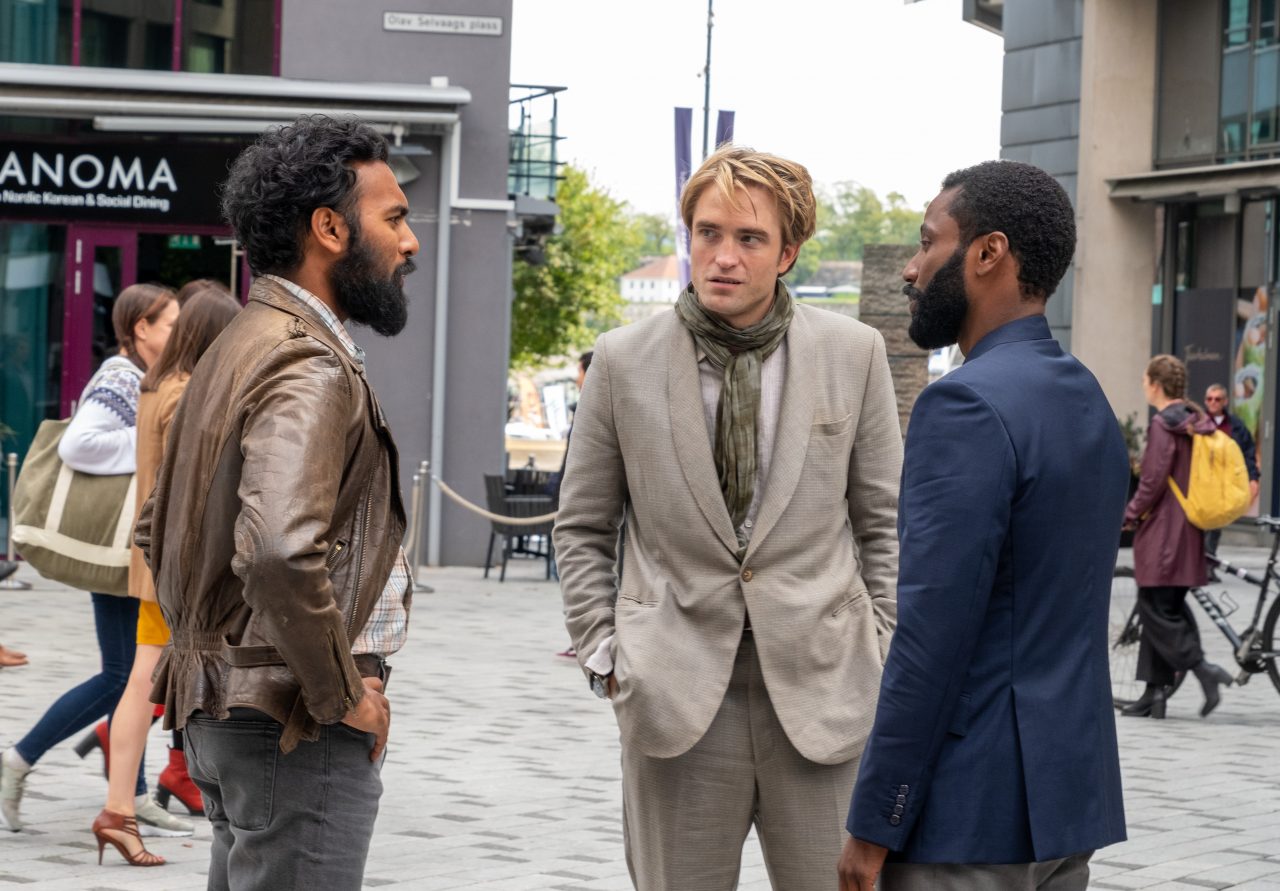
What’s really interesting about what you said there is I looked up the word Tenet because I remembered the word from school and I was thinking, what does that word mean? It has got to be some kind of interesting idea behind, knowing Christopher Nolan, why he chose that. And when I looked it up, it said that it was a palindrome where the letters spell the same frontwards and backwards. And now having seen the film, I get partially why that was the case with the fact that people move through reality, you know, moving forward and moving backwards.
So, what I wanted to ask you is, and that was the other thing is that the main antagonist is called Sator and Sator is also a word from the Sator Square. I wanted to ask you this because it was really interesting, because Sator means planter and Tenet means master. There’s got to be some kind of relationship with why they were both in that film that way, and I want to get insight from it from you, because having seen the movie once, I feel like I need to see a whole bunch of dozen times more to actually get that.
Yeah, well, the thing is, I didn’t actually get to talk to Chris about all these different elements. I think at this point, he’s probably keeping those cards still quite close to his chest because obviously the film just came out. But I’m looking forward to seeing exactly how the architecture of the story that he’s created, because I’m sure all those elements you’ve mentioned are a part of it. And there are other things that people will recognize if they watch the film with that in mind. It just speaks to how amazing a storyteller he is. He tells these kind of epic blockbuster stories, but kind of threaded into the whole thing, all these amazing concepts and these explorations of existence in a way that I think are what make his movies so amazing.
Absolutely. For anyone out there that isn’t a Chris Nolan aficionado or isn’t really a film goer per se, why do you feel that this particular film is something that they should definitely watch, especially if it’s the first Christopher Nolan film that they have that they’ve come across?
I think because they’re going to see stuff that they’ve never seen before, you know. There’s an element to this movie, which I won’t spoil, but it means that you’re going to see things on the cinema screen that will make your jaw hit the floor because you’ll barely be able to comprehend what you’re looking at. It’s something that I think Chris has obviously been very famous for doing through all of his movies from Inception through The Dark Knight films, obviously. But this time he’s taken it to a whole other level with the way that he’s almost fused all the different ideas that he’s been playing with over the years and made it something so cinematically thrilling that, you know, it’s the perfect film to capture the cinema, if you can.
Absolutely. And that’s what’s really great right now. It almost seems, you know, divinely time that we’re in an era right now where we’re slowly going back to the cinemas, the world is starting to open up. That this kind of film, which really its truest glory is seeing it on the big screen, is seeing it in theater, which I had the pleasure of seeing on one of those big IMAX screens. It’s so spectacular to watch and so layered that if this film doesn’t bring you back to the theater, I don’t know what film’s going to.
The story is very, very intricately woven. The characters are very beautifully developed, how they kind of interchange with each other. There are so many countries that it was shot in like, I believe seven countries that it was shot in. it. The amount of different nationalities of characters that were used and casting that was done. This truly is a global film. I mean, what are your thoughts on that?
I think the thing with Chris is that he knows how international cinema is. When we spoke about my character before we started shooting, he was very aware of how his movies are seen by people all over the world. I think especially he went to India; I think maybe to do scouting locations for this movie, and he said he got recognized more in India than he had anywhere else. People knew who knew he was, and he had kind of young people coming up and asking him about filmmaking. He found it really, really great. I think he wanted to make that part of his tapestry for this story and then also for him to cast, you know, an actress like Dimple Kapadia who to people like me who grew up with Bollywood, but obviously to Indian people as well she’s a huge actor. It’s a really clever way of making it a truly international kind of cast.
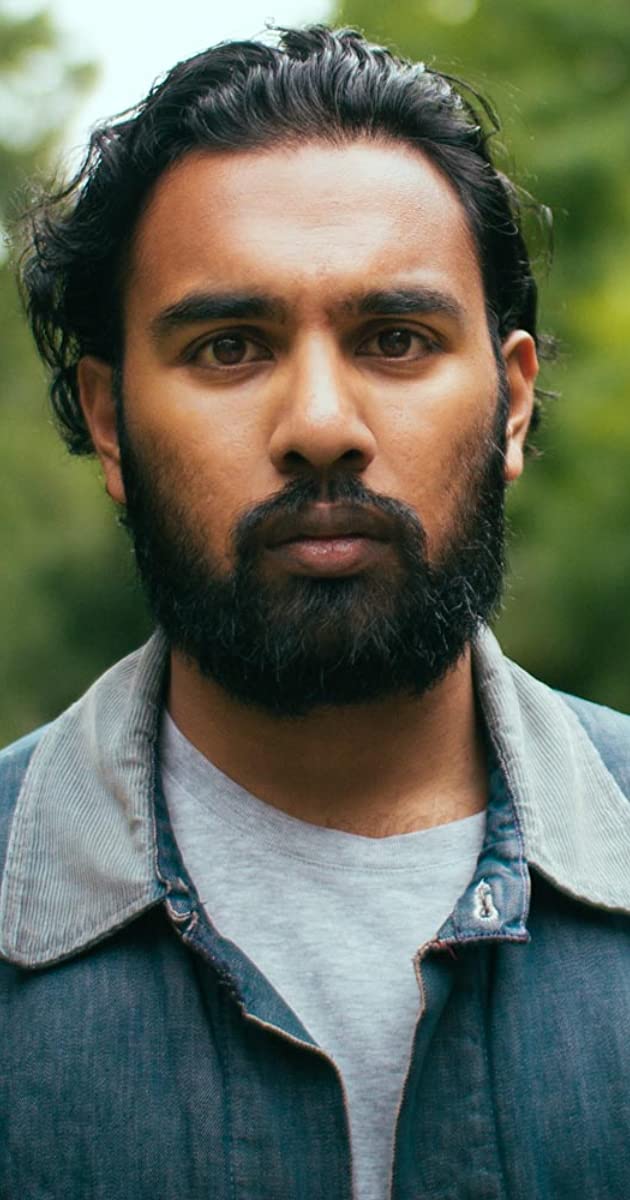
Absolutely. The really interesting thing is, is that he chose to make her character almost like a secondary antagonist to the character of Kenneth, like, you know, especially towards the ending. I don’t want to give away the plot or anything, but you kind of get to feel that she’s an antagonist in the film when you get towards the end of the film, which is really wonderful.
I’m curious to ask you, your character of Mahir, it seems like it was a colour-blind casting because he was a British South Asian. You play an American South Asian, but it’s never talked about is. When they announced that we’re going to India in this particular part of the plot, I was thinking, ‘okay, I’m going to see him there’. But you weren’t there. We saw you in the most unexpected part of the film and plot with there being absolutely no idea of casting you because of your ethnicity. I mean, was that purposeful? Can you give us some insight on that? Because I found it fascinating.
I think Chris was actually a bit more specific about who he wanted to cast in that role, but he was very open to ideas of where that person would be from and the direction that we could go in with that character. It was a really pleasant surprise, I suppose, for me, because I was going in thinking that he’s a huge director, very accomplished, and he’s known for his stories being very precise and precisely plotted and characterized. But he was really open to me kind of saying, ‘hey, would you recommend being American?’ And he was like, ‘yeah, great.’ That was really, really great. And it just meant that it’s added another texture, I suppose, in terms of the characters and story.
Absolutely. Where your character is concerned, what was it about this role that you felt, ‘okay, this is for me.’
See, the way things panned out, until I got the role, I didn’t know what the role was because when I auditioned for it, I didn’t read anything from the film. I read some sides from something else entirely. So, it was only when I’d been offered the part and I read the script that I was like, okay this is who this person is and, you know, obviously at that point, I wasn’t going to be like, no, I’m good. That was never an option. But it was nice to kind of, as I say, have that kind of dialogue with a filmmaker like Chris. I think what I find so amazing about working with him was obviously he has a very clear vision. He knows what he wants. But what he does is surround himself with great people and other creatives and he knows how important that is. He knows he’s not doing it alone. He knows he needs the best stunt team. He works with a lot of the best actors and the best technicians to make his movies. And that’s what makes his movies as special as they are.
Absolutely. So, going back to your role Himesh, can you tell me what, specifically in your idea of how you fit into the plot, was the importance of your role? I mean, I know that you don’t want to give away too much of it, but I mean, everything that Christopher does is on purpose, your own purpose. So, I kind of want to see what you can tell us that you’re comfortable telling everybody in regard to this.
I think when it comes to a story like this and the characters like John David’s character going on a mission like this, he needs people who’ve got different expertise. My character has a kind of clear expertise in doing certain things. And that’s why he gets to do certain things that people may have seen in the trailer. So that’s kind of his background. When we spoke a little bit about who he is and where he might have come from. That’s kind of in a way good for me to have in the back of my mind. Who knows how much of that you get to see on screen, I suppose, but we try and layer it.
No, you get to see enough of it to get kind of a real sense of why he is integral to certain components, especially when you get to the climax of the film. I wanted to ask you, in today’s society, with everything that’s going on right now, this film couldn’t have come out at a better time with it having that global feel with all the different types of ethnicities involved, whereas we don’t really talk about the ethnicities. They just happen to be characters in this by default of the importance of what’s happening in the story. It’s shot in all different parts of the world as well. It’s releasing as probably one of the first movies that is releasing as cinemas are starting to open. It almost seems very well positioned for the times that we live in today. Do you have a comment on that?
You know, on one hand, obviously everything we’ve gone through this year has been really hard. Had that not happened, I think it still would have been something that stood out. Chris’ movies stand out anyway because he has a very unique style of filmmaking at this level, but I think it would have stood out for the very reasons that you’re talking about. And now, it’s kind of unwittingly flying the flag for getting people back into cinemas when they feel safe to do so. I am really glad that it’s a movie like this, it’s a movie from a filmmaker who loves cinema and pushes cinema to its limits in terms of what it can be and how powerful it can be. And also, we’ve got a black lead in a big epic blockbuster and that’s a really powerful thing, I think, in the moment as well. So, I’m really proud to be part of the film and I’m hoping that it goes really, really well.
Absolutely. I can’t see why it wouldn’t because it has everything that you’d expect from an entertainment perspective, from a probing perspective, because that’s who I am. I love to critique and look at what is actually going on. What are these pieces of the jigsaw puzzle that are coming together to make this happen? And I feel this film is quite unique on many levels because it’s not just pulling from, okay, here’s a good story or here’s great action scenes. It’s pulling also from multiple global ethnicities. Very rich characterization. The story it’s so vested emotionally that I feel like I need to see a few times, you know, everyone out there do it, encourage people to go out and see this movie more than one time.
The great thing about people like you Himesh, is that we’re living in a time now, which is different from my time. I mean, I’m 50 years old, so I come from the time of the 80s and 90s where you’d never see ethnicity in big blockbuster films. And here you are. You’re one of the testaments of the varied films and work in the theatre and all the other different ways that you’ve been involved in the whole acting realm. You have such a diverse pool and body of work. What do you feel that’s a testament to? Other than obviously your talent. Anyone that has seen your work can see that and your authenticity and the fact that you’ve put in your dues and your time and all the rest of it. But the opportunity needs to be there, right? It hasn’t always been there. So, in your experience, what do you feel it is outside of everything you bring to the table in the world that we live in today?
I think it’s that people are starting to realize that they have to diversify in terms of where they’re looking for their talent, that the talent pool is maybe wider than they previously imagined. And that sometimes if you just widen your pool a little bit and look in places and you look at people who you previously may not have considered for X, Y, Z role, then you might be pleasantly surprised. Then you pick the right person for the role and that person just happens to be black. That person just happens to be brown or of any other minority. And then you’ve kind of done something huge in a way simply by casting the right person for the role. For example, I know that the pool that Danny was auditioning from was everyone. I just happened to be the right guy for the role as far as he was concerned but obviously, he didn’t mean to do that.
But what that meant then was that brown people around the world were going, ‘oh, my God, finally there’s a brown guy playing a rock star in a movie. That was just because they just widened the talent pool. They just kind of went, where else can we look here for the right person? And I think the more that people do that, the more naturally we’ll start to fall into certain roles that we’re just grateful. On the other hand, there needs to be more encouragement and validation of stories that require kind of specific casting. The other side of it where that needs to happen. But I do feel really lucky with the way that my career is going. But I would hope that I can use this platform to kind of elevate those stories and those kinds of visions that I want to show the world.
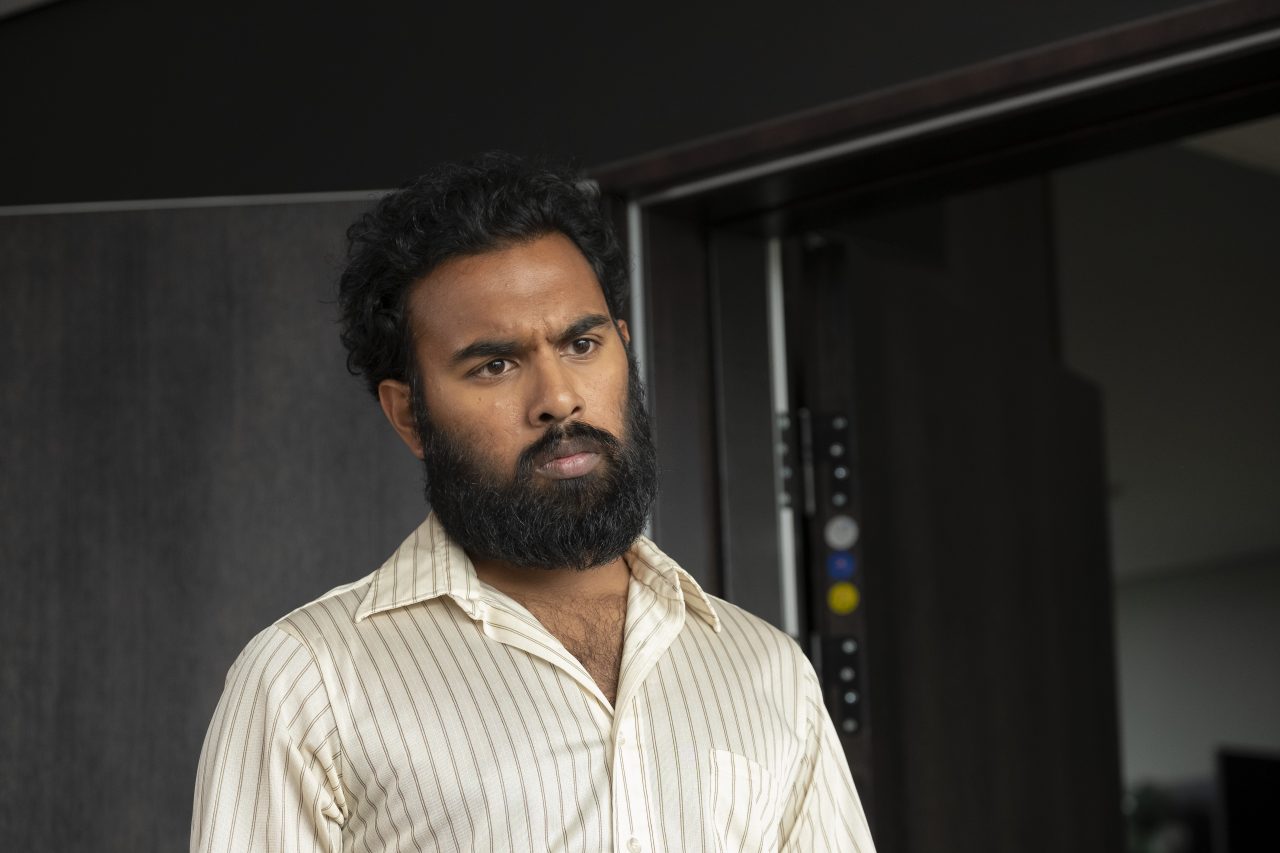
Absolutely. Your varied work so far is a testament to that. For those people out there whose parents have always told them that they’ve got to go out there and they’ve got to do the corporate job, they’ve got to become, you know, your doctor, accountant, lawyer, etc., especially in our culture. I mean, you didn’t do this, right? Looking back over that narrative, which I’m sure at some point was there for you, as it is for anyone from strong ethnic backgrounds, especially the South Asian community. Knowing what you’ve seen happen with your career, what would you say to anyone out there aspiring to get into the entertainment business?
I mean, I was very lucky in the sense that my parents were actually always encouraging me, so I was very, very lucky to have that. At the same time, I’d hope that myself and a lot of other South Asian actors who are doing pretty well at the moment. I hope that we can be examples of when it can work or if you put in the hard work and you work on your craft. I think that’s the main thing for me, when I was growing up being an actor, even though I got a job on TV, at a young age. For me, it was never about the celebrity. That’s kind of a by-product to what you do. It’s about the work of being an actor. It’s about the craft of being an actor. It’s about making sure that’s your number one and that’s what you work on because that’s what will carry you forward. And that’s why then you might get to stages where people know your name or whatever, because you were in X, Y, Z film, that sort of thing. The number one thing always has to be working on the craft of being an actor. And that’s got to be the passion, really.
In terms of how that measures, in terms of success, I suppose measuring success is a very difficult thing to do. I think this career choice is as valid as any career choice, and I know that’s not as easy always to explain to everyone, you know, from whatever culture, to be honest, I know that is prevalent within the South Asian community, but I hope less and less because, as I said, there’s more of us there. There’s more of us who kind of fought for our place at the table and so the more that we are going to be seeing, the more of the kids who are watching will say ‘oh, I can be that.’ The talent pool will widen and hopefully we will keep moving upwards.
Absolutely. And we truly will represent the world the way it is, right?
I hope so, yeah.
Absolutely. You were such a pleasure. Thank you so much for your time here.
Thank you.
Appreciate it. And good luck with the film. It was fab. I loved, loved, loved it. Thank you.

